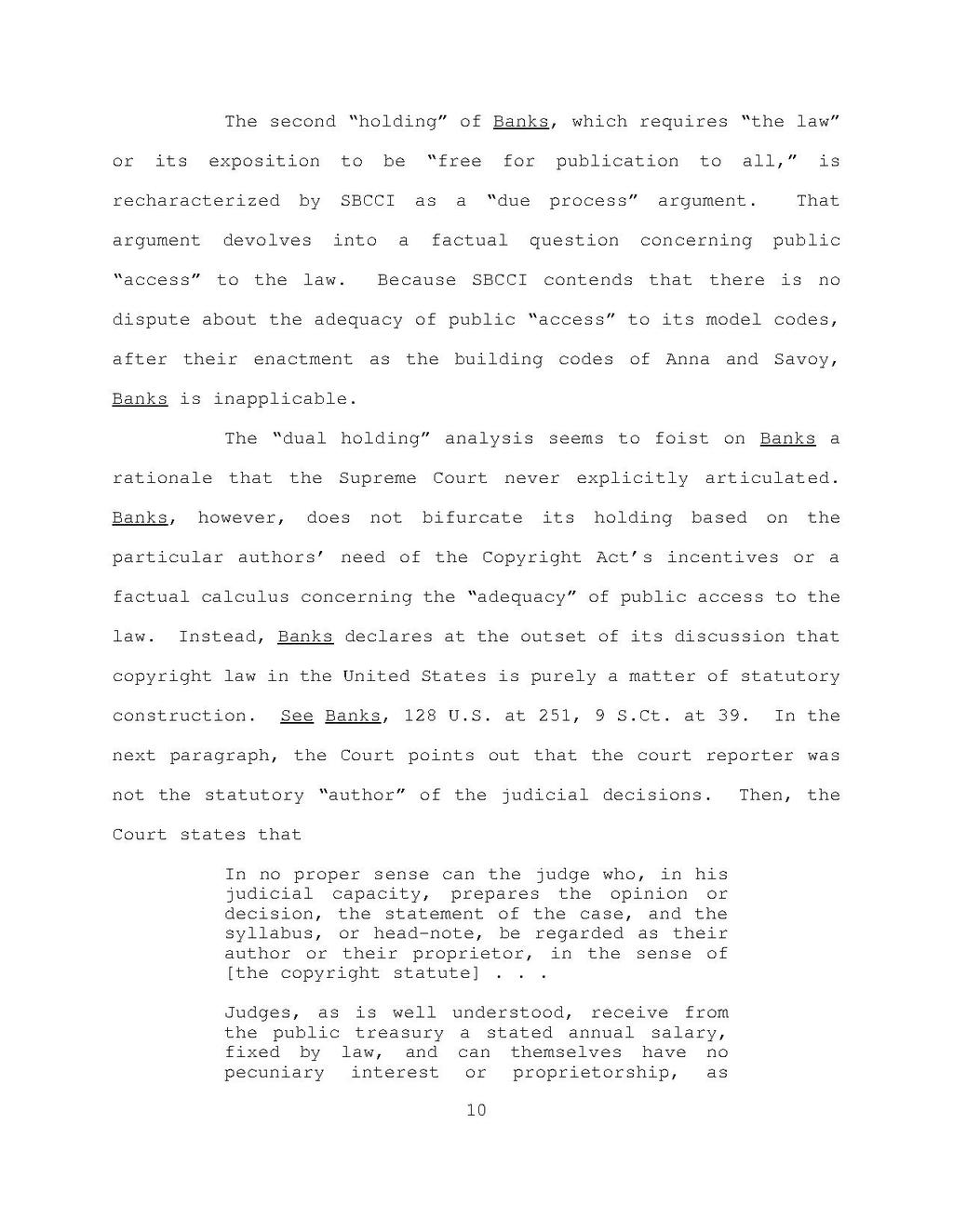The second "holding" of Banks, which requires "the law" or its exposition by to be "free as a a for "due publication process" to all," is recharacterized by SBCCI as a "due process" argument. That argument devolves into a factual question concerning public "access" to the law. Because SBCCI contends that there is no dispute about the adequacy of public "access" to its model codes, after their enactment as the building codes of Anna and Savoy, Banks is inapplicable.
The "dual holding" analysis seems to foist on Banks a rationale that the Supreme Court never explicitly articulated. Banks, however, does not bifurcate its holding based on the particular authors' need of the Copyright Act's incentives or a factual calculus concerning the "adequacy" of public access to the law. Instead, Banks declares at the outset of its discussion that copyright law in the United States is purely a matter of statutory construction. See Banks, 128 U.S. at 251, 9 S. Ct. at 39. In the next paragraph, the Court points out that the court reporter was not the statutory "author" of the judicial decisions. Then, the Court states that
In no proper sense can the judge who, in his judicial capacity, prepares the opinion or decision, the statement of the case, and the syllabus, or head-note, be regarded as their author or their proprietor, in the sense of [the copyright statute] . . .
Judges, as is well understood, receive from the public treasury a stated annual salary, fixed by law, and can themselves have no pecuniary interest or proprietorship, as
10
